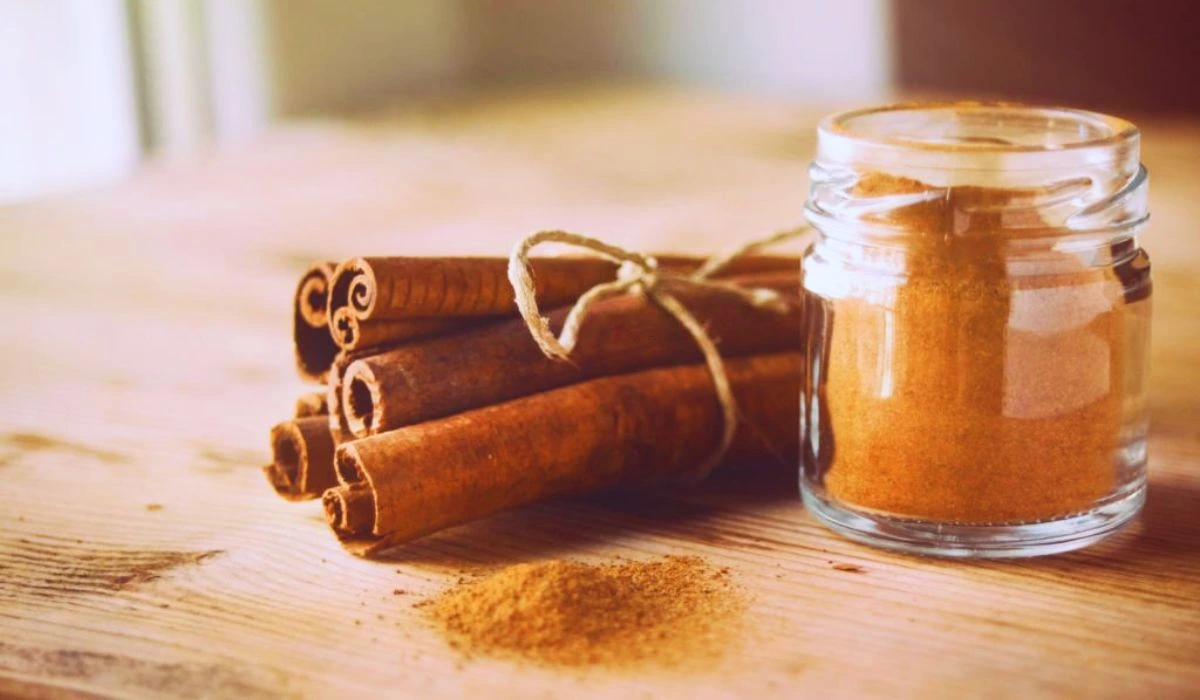Cinnamon is a popular spice that has been used for thousands of years in cooking and medicine. In recent years, cinnamon has gained attention for its potential ability to lower blood sugar levels.
For people with diabetes or prediabetes, keeping blood sugar levels in a healthy range is crucial. Many are interested in whether adding cinnamon to their diet could help improve blood sugar control. In this article, we’ll take a look at what the research says about cinnamon and blood sugar.
Can Cinnamon Lower Blood Sugar Effectively?
Several studies have suggested that cinnamon may help lower blood sugar levels. In one 2003 study, 60 people with type 2 diabetes were split into six groups. Three groups took 1, 3, or 6 grams of cinnamon per day, while three other groups took placebo capsules. After 40 days, all three doses of cinnamon reduced fasting blood sugar levels by 18-29% compared to placebo.

Another study had 70 people with type 2 diabetes take either 1 gram of cinnamon or a placebo capsule each day for 12 weeks. The cinnamon group had an average decrease in fasting blood sugar of 10.3%. Their blood sugar also decreased after eating compared to placebo.
So based on these and a few other studies, it appears cinnamon may have a mild effect on lowering blood sugar. However, not all studies have found cinnamon to be effective. One review of 10 trials concluded that cinnamon doesn’t significantly improve blood sugar control in most people with diabetes.
The amount of cinnamon required and its effectiveness can vary from person to person. Overall, the evidence suggests that cinnamon may provide a modest decrease in blood sugar, especially in those with higher starting levels. However, it should be considered an addition to a healthy diabetes diet and lifestyle, not a replacement.
Also Check: Does Popcorn Raise Blood Sugar? Discover The Surprising Truth
How Much Cinnamon To Take Daily To Lower Blood Sugar?
The amount of cinnamon that may help lower blood sugar isn’t entirely clear based on the research. Studies have used between 1 gram to 6 grams per day. A typical cinnamon stick contains around 4 grams. A teaspoon of ground cinnamon weighs about 2.6 grams.
Most studies showing benefits have used doses of 1-3 grams per day. Taking more doesn’t necessarily seem to lower blood sugar further. One study found that taking 6 grams per day lowered blood sugar slightly more than 2 grams per day. But the difference wasn’t dramatic.
Based on the current evidence, 1-3 grams per day or about 1/4-1/2 teaspoon is likely a reasonable amount that may provide benefits. Starting with 1 gram (1/4 teaspoon) is a good option to assess tolerance. Cinnamon capsules are also available if you don’t enjoy it sprinkled on foods or drinks.
Of course, it’s ideal to speak with your doctor about incorporating cinnamon into your diabetes management routine. They can provide guidance on safe daily amounts for your individual case. It’s also wise not to exceed recommended doses. Taking too much may cause side effects like mouth sores or low blood sugar in some cases.
How Long Does It Take Cinnamon To Lower Blood Sugar Really?
Research shows that cinnamon can start to lower blood sugar levels within several weeks, but the time frame can vary.

In one study, people taking just over 1 gram per day (about 1/4 teaspoon) experienced a decrease in blood sugar of 8.4% after 4 weeks. Those who took twice as much (over 2 grams/day) had a 10.3% reduction.
Other studies show that larger doses like 6 grams/day may start lowering blood glucose within 2-4 weeks. But the full effects may continue to increase over the length of the study such as after 40 days.
Therefore, you may see initial benefits with daily cinnamon use in around 2-4 weeks. But the peak effects on blood sugar likely take longer, possibly around 2-3 months. Patience is important as cinnamon works gradually.
Of course, cinnamon should never be used to replace diabetes medications or insulin if prescribed. Work closely with your healthcare provider and use cinnamon as an addition to other therapies in your treatment plan. Monitoring your blood sugar levels is the best way to determine if cinnamon is working for you.
Read More: Does Glycerin Raise Blood Sugar? Advantages Of Using Glycerin
Conclusion
Research has shown promise that adding cinnamon to your diet may provide modest improvements in blood sugar control for people with diabetes or prediabetes. While not a cure-all, it appears taking 1-3 grams per day may help lower fasting blood glucose and post-meal spikes. It may take several weeks to lower blood sugar, with benefits increasing over the first 2-3 months.
Cinnamon provides the best chance for effectiveness when combined with a balanced, diabetic-friendly diet, activity, medication adherence, and other healthful lifestyle strategies. Talk to your doctor to see if cinnamon is an appropriate addition to your individual diabetes management plan.
FAQs
Ans: Studies have used between 1-6 grams per day, but 1-3 grams or around 1⁄4-1⁄2 teaspoon seems effective for most people to potentially lower blood sugar. It’s best to start with a low amount like 1 gram to assess tolerance.
Ans: Cinnamon can be taken anytime. Some people prefer taking it in the morning, others sprinkle it on oatmeal or other foods throughout the day. Taking cinnamon capsules right before a meal may help blunt post-meal blood sugar spikes.
Ans: Cinnamon is generally safe for most people at recommended doses. However, side effects can include mouth sores, low blood sugar, or liver problems if exceeding doses of more than 6 grams per day. Check with your doctor about medication interactions and proper dosing for your health conditions.
Ans: Research shows benefits may start within a few weeks, but the peak effects seem to occur after taking it regularly for 2-3 months. Monitor your blood sugar levels to see if cinnamon is working for you.
Ans: No, cinnamon should always be used in addition to any prescription diabetes medications or insulin regimen recommended by your doctor, never in place of it. Don’t discontinue medications without consulting your healthcare provider.

